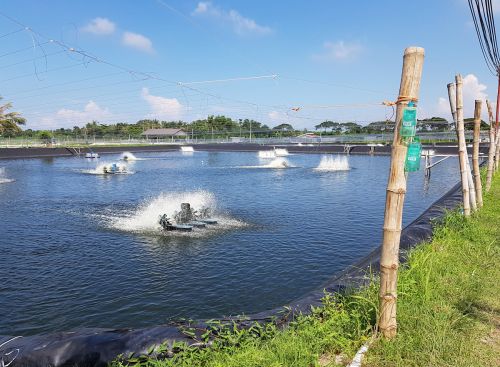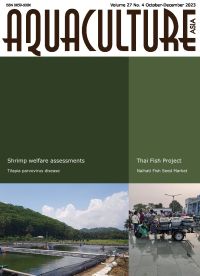How welfare assessments of farmed white leg shrimp (Penaeus vannamei) can benefit the whole industry
31 October 2023 | FAI Farms | 527 Downloads | .pdf | 1.49 MB | Health and Biosecurity, Shrimp
The welfare of decapod crustaceans, the largest group of farmed animals worldwide, is gaining prominence in the aquaculture industry. Taking better care of the billions of shrimp farmed annually not only responds to certification standards and consumer demand, it is the right thing to do. Embracing a welfare approach has the potential to address current challenges in shrimp farming by providing insights into farming conditions and animal health, ultimately boosting production performance. Recording welfare data enhances transparency along the supply chain, ensuring that every actor, from hatcheries to shrimp buyers, understands the quality of the breeder, post larvae, or shrimp they purchase.
This article also details a free online training course on shrimp welfare created by FAI Farms. All industry participants are invited to obtain their "Shrimp Welfare Indicator" certificate.
Creative Commons Attribution.

